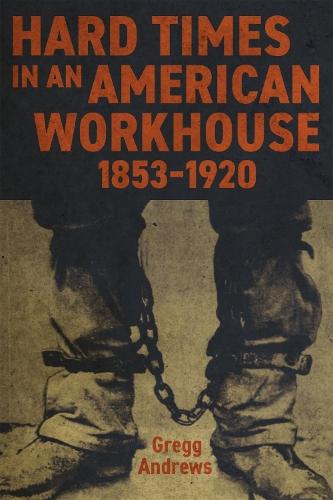Overview
Hard Times in an American Workhouse, 1853 1920, is the first comprehensive examination of a workhouse in the United States, offering a critical history of the institution in the Gilded Age and Progressive Era. Using the Old St. Louis Workhouse as a representative example, award-winning historian Gregg Andrews brings to life individual stories of men and women sentenced to this debtors' prison to break rocks in the quarry, sew clothing, scrub cell floors and walls, or toil in its brush factory. Most inmates, too poor to pay requisite fines, came through the city's police courts on charges of vagrancy, drunkenness, disturbing the peace, or violating some other ordinance. The penal system criminalized everything from poverty and unemployment to homelessness and the mere fact of being Black. Workhouses proved overcrowded and inhospitable facilities that housed hardcore felons and young street toughs along with prostitutes, petty thieves, peace disturbers, political dissenters, """"levee rats,"""" adulterers, and those who suffered from alcohol and drug addiction. Officials even funneled the elderly, the mentally disabled, and the physically infirm into the workhouse system. The torture of prisoners in the hellish chambers of the St. Louis Workhouse proved far worse than Charles Dickens's portrayals of cruelty in the debtors' prisons of Victorian England. The ordinance that created the St. Louis complex in 1843 banned corporal punishment, but shackles, chains, and the whipping post remained central to the institution's attempts to impose discipline. Officers also banished more recalcitrant inmates to solitary confinement in the """"bull pen,"""" where they subsisted on little more than bread and water. Andrews traces efforts by critics to reform the workhouse, a political plum in the game of petty ward patronage played by corrupt and capricious judges, jailers, and guards. The best opportunity for lasting change came during the Progressive Era, but the limited contours of progressivism in St. Louis thwarted reformers' efforts. The defeat of a municipal bond issue in 1920 effectively ended plans to replace the urban industrial workhouse model with a more humane municipal farm system championed by Progressives.
Full Product Details
Author: Gregg Andrews
Publisher: Louisiana State University Press
Imprint: Louisiana State University Press
Dimensions:
Width: 15.20cm
, Height: 2.20cm
, Length: 22.90cm
ISBN: 9780807182789
ISBN 10: 0807182788
Pages: 256
Publication Date: 29 October 2024
Audience:
Professional and scholarly
,
Professional & Vocational
Format: Hardback
Publisher's Status: Active
Availability: Available To Order

We have confirmation that this item is in stock with the supplier. It will be ordered in for you and dispatched immediately.
Reviews
""A searing account of life on the margins of America. Archivally rich, unique in its focus on the tragedies and injustices of one river-town institution, and written with deep compassion for the remarkable stories of its subjects, this is an essential and urgent slice of forgotten social history.""--Thomas Ruys Smith, author of Deep Water: The Mississippi River in the Age of Mark Twain ""Andrews's meticulously researched and smartly written study of St. Louis's Old Workhouse, a site of institutionalized corruption and shocking violence, illuminates the process by which poverty, race, and dissent were criminalized in the service of labor discipline, political repression, and social control. Andrews's recovery of the stories and voices of downtrodden prisoners--their condition and acts of resistance--constitutes not only an achievement of scholarship but of justice.""--Matthew E. Stanley, author of Grand Army of Labor: Workers, Veterans, and the Meaning of the Civil War ""In this shocking history, Gregg Andrews meticulously details the Dickensian conditions of the St. Louis Old Workhouse, an institution that well into the twentieth century exercised a brutal carceral regime against the city's most vulnerable citizens. Expertly researched and compellingly written, Andrews's study infuses humanity in an otherwise cruel, unfeeling system. This book is an invaluable contribution to not only St. Louis history but the history of American workhouses, a severely understudied topic that reveals uncomfortable truths of today.""--Melissa Ford, author of A Brick and a Bible: Black Women's Radical Activism in the Midwest during the Great Depression
Author Information
Gregg Andrews is Distinguished Professor Emeritus of History at Texas State University and the award-winning author of seven books, including Shantyboats and Roustabouts: The River Poor of St. Louis, 1875-1930.




